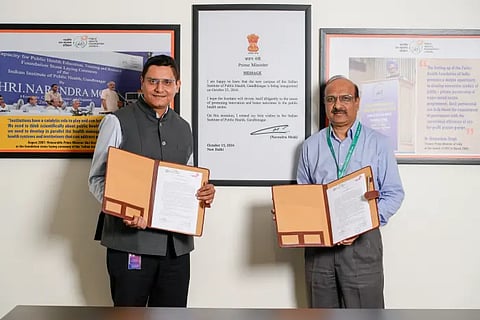

Reckitt, a global leader in consumer health and hygiene, has partnered with the Public Health Foundation of India (PHFI) to amplify purpose-driven health, hygiene, and life skills initiatives across India. This strategic alliance leverages Reckitt’s expertise in behavioural change and PHFI’s leadership in public health education, research, and policy advocacy.
Established in 2006, PHFI is a globally recognized public-private institution dedicated to strengthening India’s public health ecosystem. Ranked second globally among schools of public health (International Journal of Public Health, March 2024), PHFI has also been designated as an ICMR Collaborating Centre of Excellence. With five Indian Institutes of Public Health and over 4,800 research publications, PHFI continues to be a key player in shaping national and global public health discourse.
Through this collaboration, Reckitt and PHFI aim to co-create innovative, scalable solutions to improve sanitation and hygiene, while also enhancing institutional capacity and community outreach. PHFI will work closely with Reckitt and its civil society partners to validate existing programs, generate evidence, and translate learnings into impactful case studies and academic publications.
Professor Sanjay Zodpey, President of PHFI, noted, “This partnership is geared towards building community-responsive programs through training, research, and capacity building to tackle public health challenges with a strong focus on hygiene and sanitation.”
Echoing this vision, Ravi Bhatnagar, Director of External Affairs and Partnerships, Reckitt – South Asia, said, “We believe in collective impact. By combining Reckitt’s grassroots behavioural change expertise with PHFI’s academic and policy leadership, we’re contributing meaningfully to the vision of Viksit Bharat by 2047.”
This mission-driven alliance underscores the importance of trusted, purpose-aligned public-private partnerships in creating a healthier, more resilient India. Together, Reckitt and PHFI are laying the foundation for evidence-based, community-driven interventions that aim to transform public health outcomes and ensure access to hygiene and healthcare as a basic right for all.